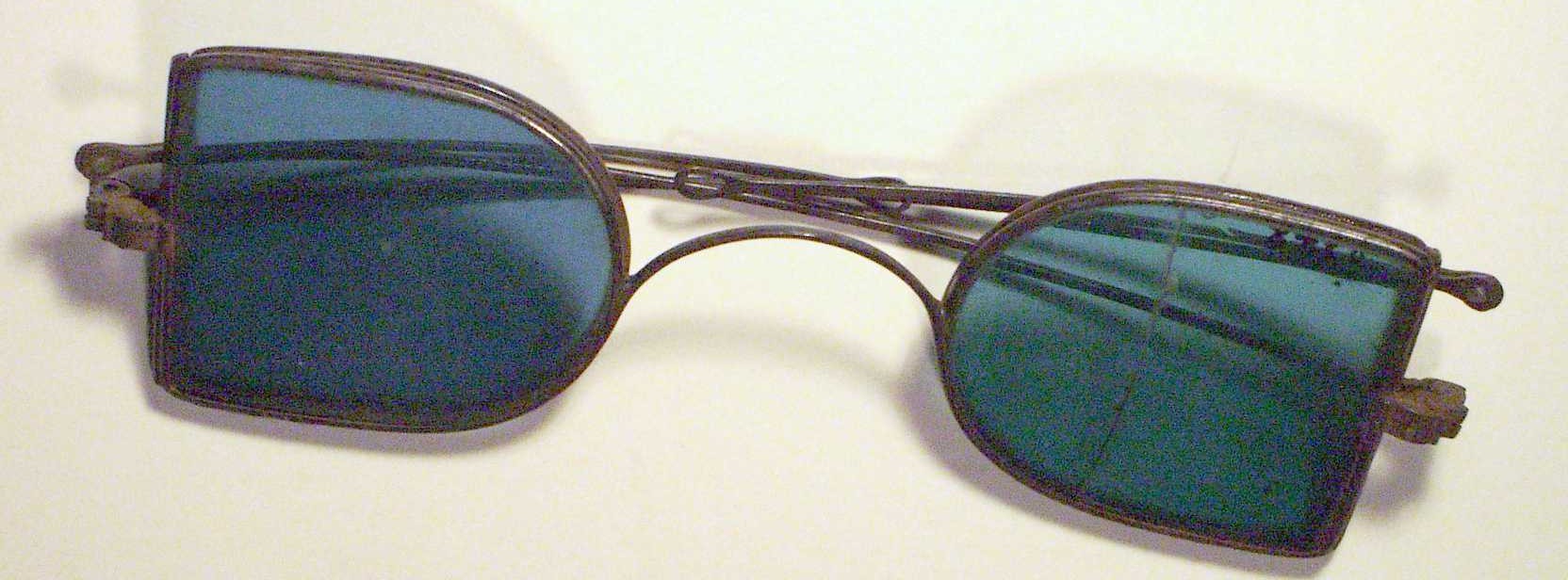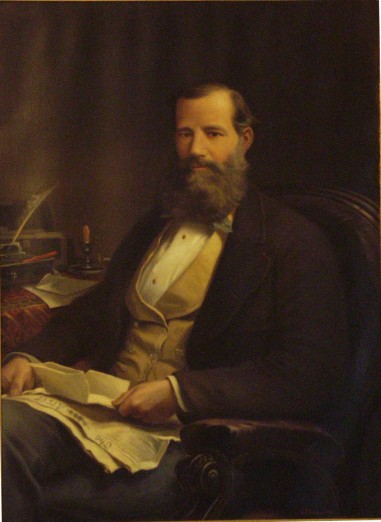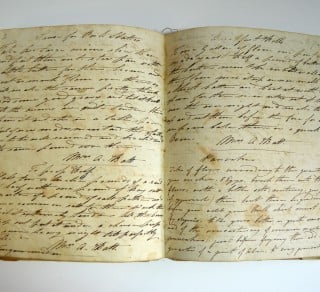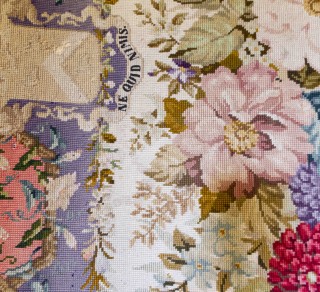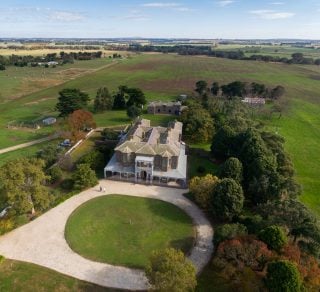60th Object Como Collection
“We have received Port Phillip papers to the 11th February. The whole province had suffered from fearfully destructive bush fires, which raged worst on Thursday, the 6th, assisted by a furious hot wind… Vast numbers of sheep, cattle, and horses had been destroyed, and the loss in grain of all kinds, principally wheat, is counted by thousands of bushels ; inquests had also been held on the bodies of nine persons up to the 9th February, and several more were missing and reported dead.” The Maitland Mercury, 22 February 1851
On a tag attached to this personal item a piece of family history has been typewritten. It states that these spectacles were worn by Caroline Armytage during the Black Thursday bush fire, of 6 February 1851. It is unknown when Caroline Armytage nee Tuckwell immigrated to Australia. Her name does not appear on the ‘Atlanta’ passenger lists, on which members of her family travelled in 1849. Her name appears in the 1851 British census and she was therefore not in the colony at the time of the Black Thursday fires. The inscription on the label could refer to her future husband Charles Armytage, as the bushfires burnt parts of the Geelong district. Thomas Austin and the Reverend Love – who was presiding minister at the marriage of Caroline’s sister – were active in the recovery and aid after the fires. The Armytage lands once adjoined those of the Austins and Caroline was governess to Thomas Austin’s children at Barwon Park when she meet her future husband at church.
